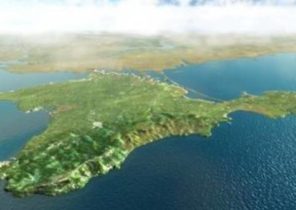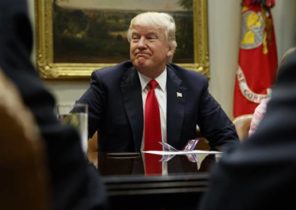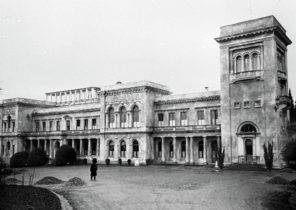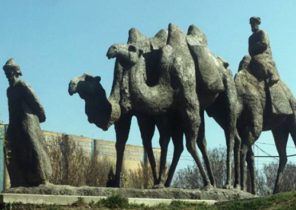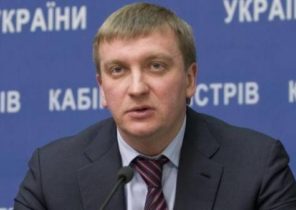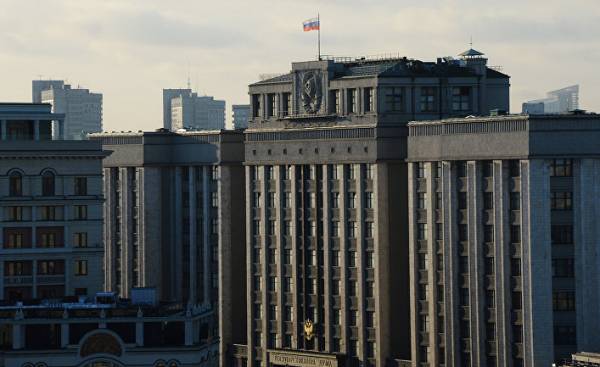
Lately infrequently happened that in Russia praised Germany and called it a model. Reports on state TV willing to show you a picture of the decadent West: refugee flows, the dominance of foreigners, criminals among the migrants, the introduction of same-sex marriage. However, one German law the deputies of the ruling party “United Russia” has considered recently are so good that now I want to immediately pass such a law in Russia.
We are talking about the so-called Act on the legality of the network that makes social media such as Facebook or Twitter to delete within 24 hours after the corresponding user complaints under the jurisdiction of the comments calling for hatred. This law, which is a prestigious project of the Minister of justice of Germany Heiko Maas (Heiko Maas) (SPD), over the past months, was criticized for the fact that it restricts the freedom of speech.
The organization “reporters without borders” as well as “Green” also warned that the law may serve as a model for non-democratic countries. Now this is what happened. It is Russia that wants to make a law against hate on the Internet, a country which is close to the state entrepreneur Yevgeny Prigozhin directs the trolley factory, which produces thousands of hate-filled comments in the electronic media and social networks. However, there is concern that it really should serve a very different purpose and will be used as another tool of Internet censorship.
“Are we worse than Germany?”
Two deputies from the party “United Russia”, Sergei Boyarsky and Andrei Alshevskih, introduced a week ago this law in Parliament. As a reason they are referred to in the accompanying document on Germany. “We just exchanged euros for the ruble,” — said Tuesday the boyar, when this project was discussed in the Committee on information policy. “Are we worse than Germany?”- rhetorically asked boyar. As expected, the Committee endorsed this project. However, on Wednesday it was said that this text should be revised and resubmitted so that it is not copied exactly to the German law.
As in Germany, Russian law wants to oblige the owners of social networks to provide users with the possibility of filing complaints. After a complaint is filed the social network are obliged within 24 hours to remove or block the jurisdiction information. In the case of non-compliance that firms face fines of up to 50 million rubles (the equivalent of about 733 thousand euros).
According to the Russian bill, it concerns all information which is “aimed at propaganda of war,” incites ethnic or religious hatred is fake or insulting the dignity of another person. In addition it includes all the information the dissemination of which in Russia is punishable by law.
Criticism of the annexation of Crimea is considered to be extremist
This is what makes the law so difficult. Because Russia is prohibited, for example, the spread of “extremist” materials, however, this concept is interpreted very widely. For example, it is forbidden to call for separatism. Such appeals are reports that annexed the Crimean Peninsula belongs to Russia. Last year one man in the city of Tver, was sentenced to two years and three months after he put on his page in the social network Vk.com the text with the headline “Crimea is Ukrainian “.
In early July, was sentenced to one year and three months one Crimean Tatar for a post in Facebook criticizing the annexation of Crimea and repression against the Crimean Tatars. In Russia are also considered a criminal offense calls for demonstrations that have been allowed by the authorities.
“The purpose of this bill is to even simpler and faster without a court order to remove a users posts for political content,” says Sarkis Darbinyan, who is the lawyer of the organization “Roskomsvoboda”. She opposes censorship of the Internet in Russia. He believes that this innovation may raise opposition leader Alexei Navalny and his supporters, who spread their message primarily on the Internet. On the relevant German law, he said: “This is one of the worst examples in international practice, this is necessary to distance yourself and not take it as example”.
Independent Internet users as a threat
Over the years, Russia had adopted several laws that allow censorship of the Internet and monitor users. Dozens of people have been sentenced by the Russian courts for their posts to prison. The Human rights organization Human Rights Watch (HRW) made in his Tuesday report on freedom of expression in Russia, especially against the repression of users in social networks. “Authorities view independent Internet users as a threat that must be eliminated,” — said on this occasion Yulia Gorbunova of HRW.
The Russian government has long been trying to attract the cooperation of Internet giants such as Facebook and Google so that you can erase at the request of the authorities of the objectionable texts. However, both firms refuse still to preserve the texts of Russian users in Russia, as it requires them to Moscow. For this reason, Russia has already closed social network LinkedIn, but the closure activities Facebook authorities still not being discussed. However, the new law may increase pressure on Facebook, Twitter and Google+.
The organization “reporters without borders” predicts in connection with the new law a “catastrophic development”. “Our worst fears come true” — said the representative of the organization Christian World (Christian Mihr). “The German law against spreading hatred on the Internet is undemocratic States as the basis in order to limit public debate on the Internet”. The representative of the Ministry of justice of Germany did not want to comment on the Russian law.

